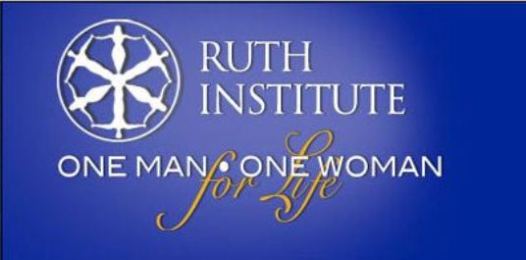This past weekend I was in sunny San Diego, CA for the Ruth Institute’s fourth annual “It Takes a Family to Raise a Village” (ITAF) conference. The Ruth Institute was founded by Dr. Jennifer Roback Morse, and works to educate people about the definition and importance of marriage and family as the foundational institution of society.
ITAF is an annual conference for people between the ages of 18 and 30, and features speakers from numerous perspectives, including theology, sociology, medical, law, and others. The weekend ended with a “Conversation on the Definition of Marriage” between Morse, theologian Robert Gagnon, Bishop Gene Robinson, and John Corvino. I was not sure what to expect going into it, but I found the weekend to be immensely informative, as it provided a fairly comprehensive discussion on the role of marriage in both public and private life.
Although it is common to hear claims that “most young people support gay marriage,” or even simply that “most young people aren’t religious,” the fifty or so participants at the conference challenge both these trends. The group was primarily a mix of Catholics, Mormons, and some Protestants from all over the United States, and a few from South America.
The weekend was full of thoughtful presentations that explored and explained the real meaning and definition of marriage that our culture has long forgotten. In many of the presentations, no-fault divorce was highlighted as a turning point for marriage in the US. The prevalence of divorce is a large contributing factor to why many in my generation support same-sex marriage, are generally skeptical of marriage, or intentionally delay marriage until they accomplish other life goals. We have grown up with high divorce rates, both in the Church and society at large, which has undermined the fact that marriage is more than a mere contract between people who feel strong emotions for each other.
William Duncan, director of the Marriage Law Foundation, explained how once marriage was viewed by the courts as the foundational institution of society, whereas now our esteemed judges often view it merely as the state’s approval of mutual feelings about a living arrangement. Doug Allen, a professor of economics at Simon Fraser University addressed the dramatic shift no-fault divorce brought. He explained how our modern culture views marriage as built on a foundation of love, but in reality, marriage and family as a life-long commitment must be the foundation upon which love is built.
When no-fault divorce was debated in the 1970s, it was commonly thought that it would have no real effect on society, as people assumed it would only make the divorce process easier for couples already planning to split anyways. This prediction, Allen explained, has clearly not been fulfilled. Further, the rise in divorce following the introduction of no-fault laws illustrates the true nature of marriage. If marriage is merely a solemnization of a relationship between “soul mates,” then loosening constraints on marriage would have had little influence on the number of divorces.
Marriage has not only been weakened in society, but also within the Church. We can see this with the divorce rates among Christians, which are somewhat disputed, but tend to hover around 30% for weekly church attendees. Also problematic is the number of Christians who are sexually active before marriage and the delay marriage age. Overall, it seems that we have lost a coherent and substantive biblical teaching on the true nature of sex and marriage. Speaking on the biblical view of marriage was Robert Gagnon, a theologian at Pittsburgh Theological Seminary. Gagnon discussed how Jesus’ teachings on sex and marriage provide clear parameters that marriage is between one man and one woman for life.
Gagnon answered the common argument by same-sex marriage proponents, that because Jesus did not specifically mention homosexuality in his teachings, he therefore tacitly approved of “committed same-sex relationships.” Gagnon explained that this assertion is entirely false for a number of reasons, namely, that Jesus did not liberalize Judaic teachings on sexuality, but in fact “closed loopholes” by prohibiting polygamy and divorce – two prohibitions that limit sexual intimacy to be shared between only two persons. This “twoness,” Gagnon said, is not arbitrary, but based on the complementarity of male and female as the only two sexes, and is the foundation of biblical sexual ethics.
So far the Ruth Institute reaches a relatively small group, but they provide a depth of resources and information – not to mention a network of mentors and peers who are committed to making an educated defense of marriage. It’s not just about the same-sex marriage issue, although that was certainly part of the conference. So many of the social problems we see today – such as poverty, crime rates, drug use, and others, have strong causal links with single parenthood and divorce.
The Ruth Institute and others who stress the importance of marriage understand that a marriage is much more than a contract between two people who feel strong emotions for each other. It is the most fundamental institution of civilization that binds parents to each other and their children for life. Many young adults have grown up seeing divorce and failed marriages as the norm, and have become disillusioned about the whole institution.Through the Ruth Institute and other like-minded organizations, I hope to see a growing movement of people from my generation renew their faith in the institution of marriage.





Pingback by Ruth Institute Blog » Love & Marriage in San Diego on August 2, 2012 at 5:25 pm
[…] Keep reading. Spread the word: […]